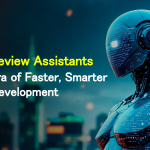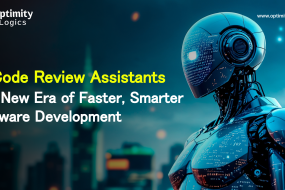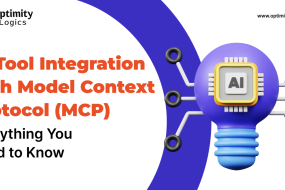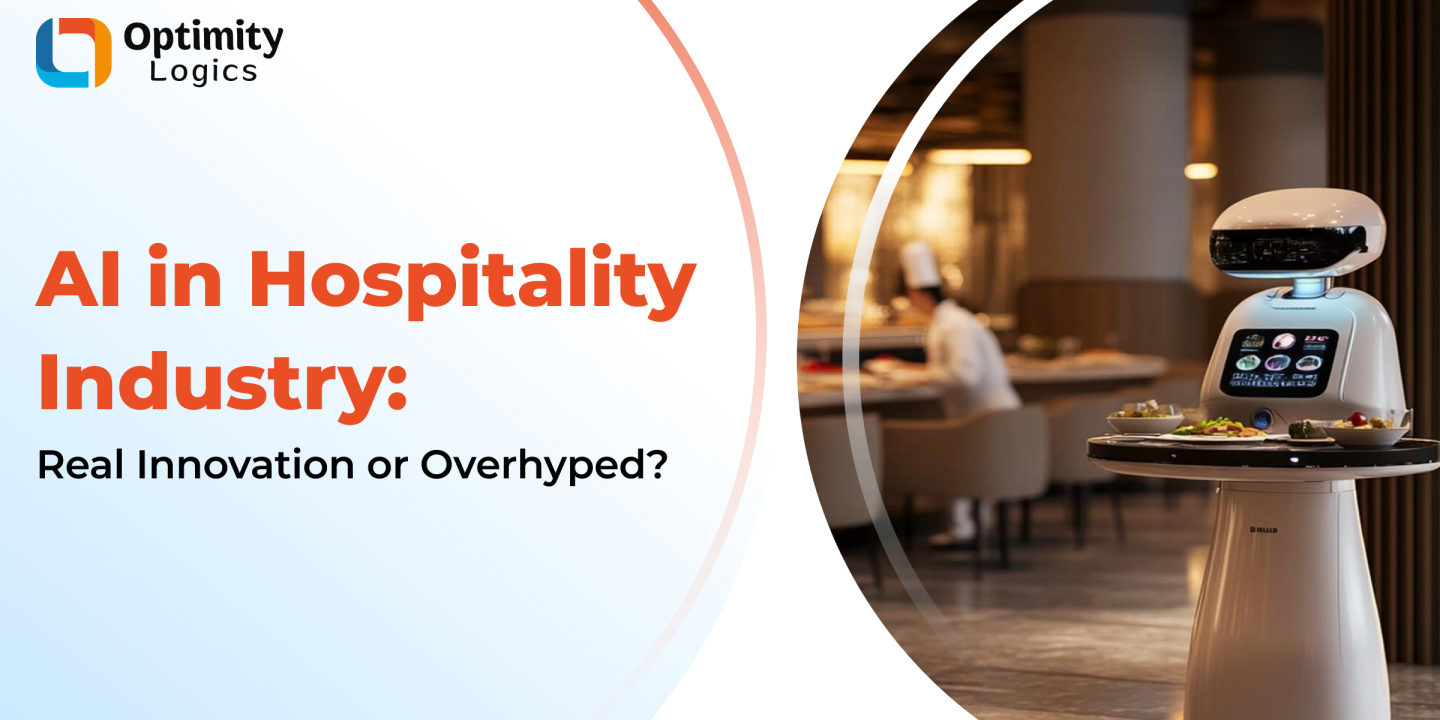
The hospitality industry has always been at the forefront of adopting emerging technologies to enhance guest experiences, streamline operations, and gain a competitive edge. In recent years, artificial intelligence (AI) has become one of the most discussed and adopted technologies in the sector. From AI-powered chatbots handling guest inquiries to predictive analytics optimizing booking rates, the applications seem both promising and vast.
But amidst all the excitement, an important question arises: Is AI in the hospitality industry truly revolutionizing the sector, or is it another overhyped tech trend?
In this Article, we explore how AI is being used in the hospitality industry today, examine real-world innovations, discuss the challenges, and assess whether the technology lives up to its expectations.
The Promise of AI in Hospitality
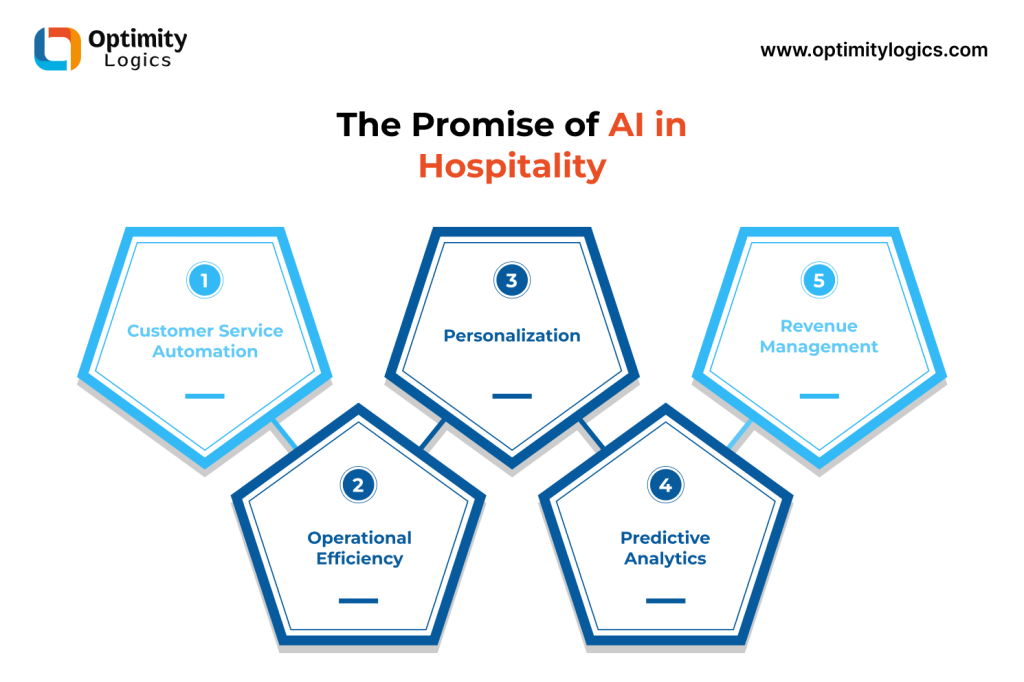
At its core, artificial intelligence mimics human intelligence to perform tasks such as learning, problem-solving, and decision-making. In the hospitality industry, this translates to a range of applications including:
- Customer Service Automation: AI chatbots and virtual assistants respond to guest queries 24/7 in multiple languages.
- Personalization: AI uses guest data to tailor recommendations, offers, and services.
- Revenue Management: Algorithms adjust pricing based on demand, season, competition, and guest behavior.
- Operational Efficiency: Robotics and automation handle tasks such as cleaning, inventory management, and food preparation.
- Predictive Analytics: AI models forecast booking trends, customer preferences, and maintenance needs.
These promises have attracted significant investment and attention. But are these innovations producing tangible outcomes?
Real-World AI Innovations in Hospitality
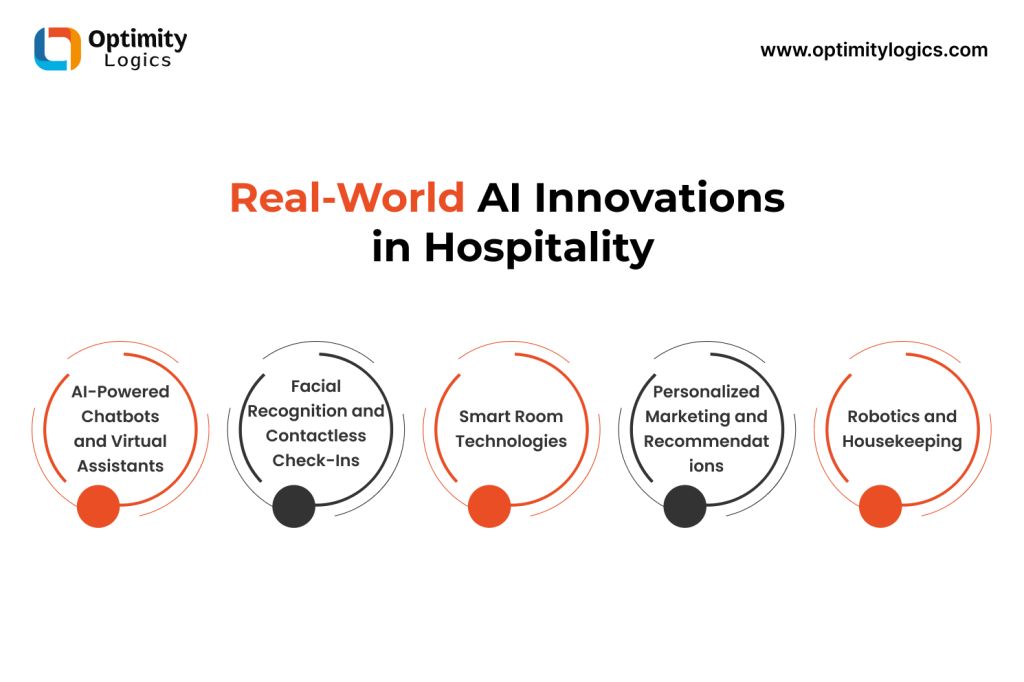
1. AI-Powered Chatbots and Virtual Assistants
Hotels around the world are deploying AI chatbots to provide instant support on websites, mobile apps, and messaging platforms. For instance, Hilton’s “Connie,” a robot concierge powered by IBM Watson, answers guest questions about hotel amenities, nearby attractions, and more.
Chatbots are not only improving customer service response times but also freeing up staff to focus on high-value interactions.
2. Facial Recognition and Contactless Check-Ins
Several hotel chains, especially in Asia, have integrated facial recognition systems to streamline the check-in process. Guests can walk in, scan their face, and access their room—all without touching a keypad or interacting with a front-desk agent.
This level of automation became particularly crucial during the pandemic when contactless services gained priority.
3. Smart Room Technologies
AI is transforming hotel rooms into intelligent spaces. Voice-controlled assistants, smart thermostats, and lighting systems that adapt based on guest behavior are becoming increasingly common.
For example, Marriott has experimented with Alexa-enabled rooms where guests can request towels, control TV, or order room service using voice commands.
4. Personalized Marketing and Recommendations
AI engines analyze guest preferences, past stays, and behavioral data to suggest personalized experiences. Whether it’s recommending spa packages, suggesting sightseeing tours, or upselling room upgrades, AI ensures that the right offer reaches the right guest at the right time.
This personalization can significantly improve guest satisfaction and drive higher revenue per customer.
5. Robotics and Housekeeping
Robots are now performing tasks like room service delivery, vacuuming, and even preparing simple meals. These robots use AI to navigate hotel premises, avoid obstacles, and interact with guests.
While still in their early stages, such applications are enhancing productivity and filling labor gaps.
The Challenges of AI in Hospitality
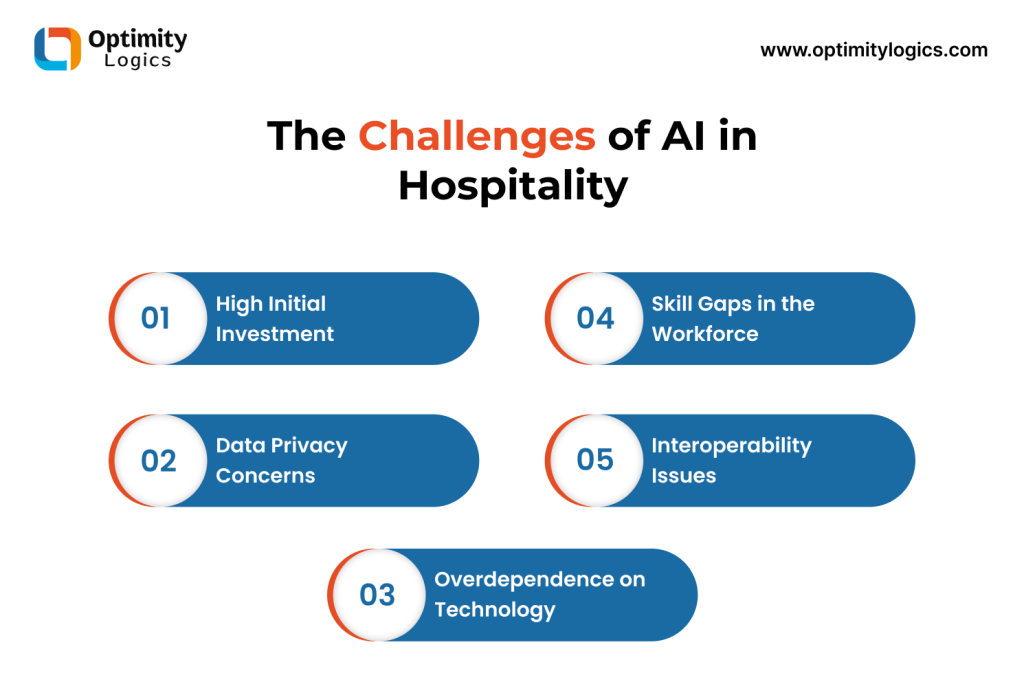
Despite its potential, the implementation of AI in hospitality is not without challenges:
1. High Initial Investment
AI solutions—especially those involving robotics, facial recognition, or custom machine learning algorithms—require significant capital investment. Small and mid-sized hospitality businesses may struggle to afford these technologies.
2. Data Privacy Concerns
Collecting and analyzing guest data raises concerns about data privacy and security. With increasing regulations like GDPR, hotels must be cautious about how they handle personal information.
3. Overdependence on Technology
Over-automating guest interactions can lead to a cold, impersonal experience. Hospitality is inherently a people-centric industry, and replacing human touch entirely with machines may backfire.
4. Skill Gaps in the Workforce
Implementing AI solutions requires technical expertise, from data science to systems integration. Many hotels and resorts lack the in-house capabilities to manage such technology efficiently.
5. Interoperability Issues
Many legacy hotel systems are not compatible with modern AI tools, making integration complex and costly. Without seamless interoperability, AI can’t function to its full potential.
AI: Hype or Game-Changer?
So, does AI live up to the hype in the hospitality industry?
The answer lies somewhere in between. AI is not a magic bullet, but neither is it just hype. When implemented thoughtfully, AI can significantly enhance guest experience, optimize operations, and drive revenue. However, the effectiveness of AI depends on a variety of factors including:
- The scale and type of the hospitality business.
- The integration strategy—AI works best when it complements human service rather than replaces it.
- The technology maturity—AI tools must be trained on accurate data and refined over time.
- The balance between automation and personalization—guests still value human warmth and empathy.
Early adopters are already seeing strong ROI. For example, a hotel using AI-powered dynamic pricing may increase revenue by 10–20%. Similarly, AI chatbots can reduce customer service costs by up to 30%.
But for those who jump on the AI bandwagon without a clear strategy, it can result in wasted investment and poor customer satisfaction.
Strategic Approach to AI Adoption
For hospitality businesses considering AI adoption, here are a few strategic recommendations:
1. Start Small, Scale Fast
Begin with low-risk, high-impact use cases like AI chatbots or sentiment analysis. Once successful, expand into more complex areas like predictive maintenance or robotics.
2. Partner with Tech Experts
Collaborating with technology partners, such as a mobile app development company, can accelerate implementation. They can ensure integration with your existing systems and provide ongoing support.
3. Focus on Data Strategy
Data is the foundation of any AI system. Ensure you’re collecting, storing, and analyzing data ethically and effectively. Build secure pipelines that comply with privacy laws.
4. Train Staff to Work Alongside AI
AI should empower—not replace—your human workforce. Train staff to use AI tools efficiently and educate them on how it enhances their roles.
5. Measure ROI
Set clear KPIs for each AI initiative—guest satisfaction, operational efficiency, revenue lift, etc.—and measure performance regularly to refine your strategy.
What the Future Holds
As AI continues to evolve with advancements in machine learning, natural language processing, and robotics, the hospitality industry will unlock even greater opportunities. We can expect:
- Hyper-personalized stays based on granular guest profiling.
- Voice-first hotel environments with seamless device interconnectivity.
- Predictive guest service where hotels anticipate needs before they arise.
- AI-driven sustainability initiatives that reduce energy consumption and waste.
With the right strategy, businesses can use AI not just as a tool—but as a transformative asset.
Conclusion
AI in the hospitality industry is more than a buzzword—it represents a significant shift in how services are delivered and how operations are optimized. However, it’s not a universal solution that can replace the core values of hospitality: human connection, empathy, and experience.
Success lies in striking the right balance—leveraging AI to enhance what makes the hospitality industry unique rather than attempting to automate it away.
At Optimity Logics, we believe the future of hospitality will be built on a strong blend of innovation and tradition. Our team specializes in creating intelligent, scalable digital platforms that support hotels, resorts, and travel companies in delivering modern guest experiences. Whether you’re exploring AI-driven enhancements or seeking end-to-end mobile app development services, we’re here to help bring your vision to life.
If you’re a hospitality business looking to implement cutting-edge technology, reach out to our team today—partner with a trusted mobile app development company that understands the future of travel and technology.
